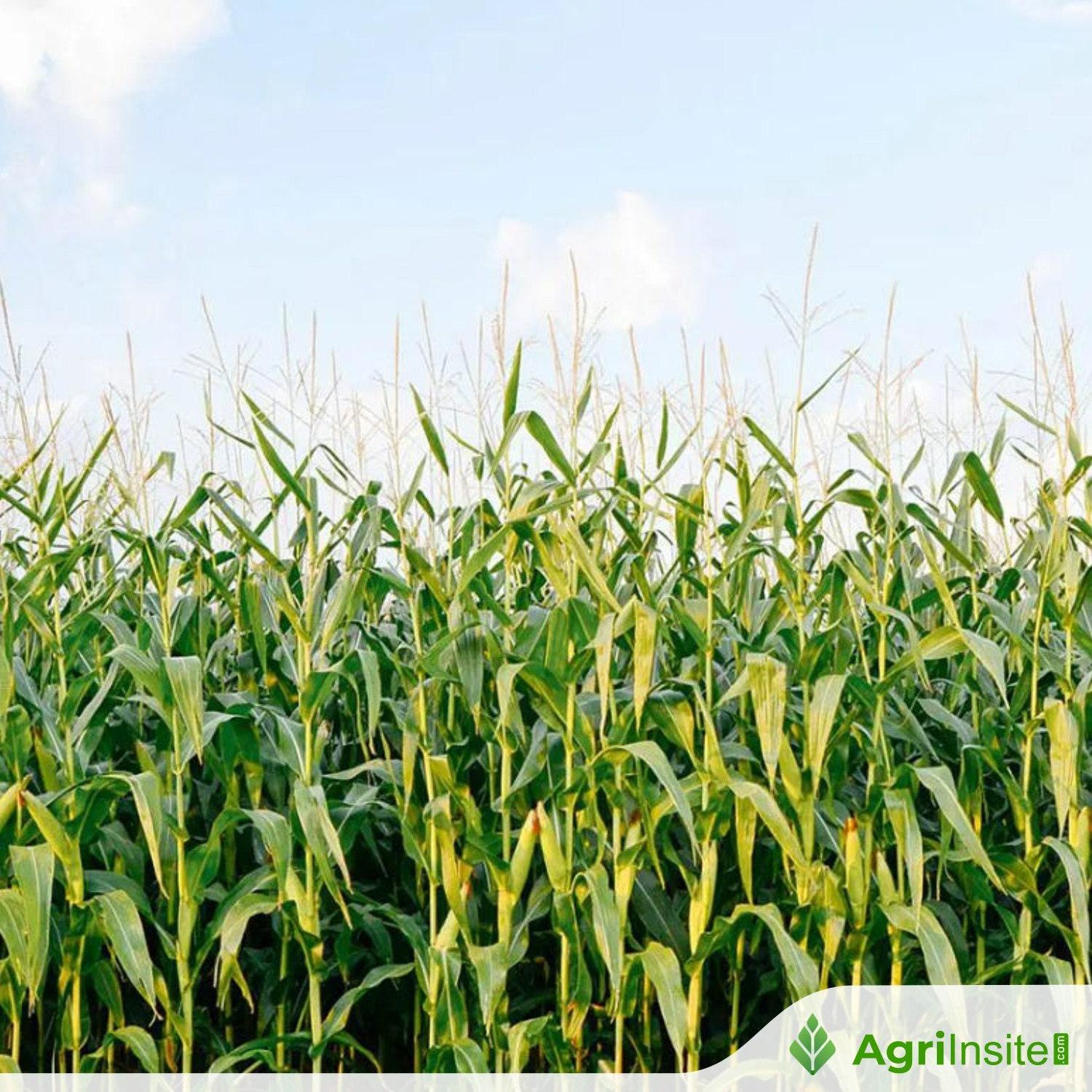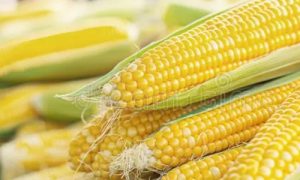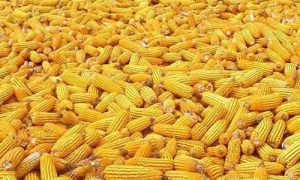High fertiliser cost: Nigeria Farmers dump rice, maize cultivation

Farmers across Nigeria are abandoning maize and rice cultivation due to surging fertiliser costs, despite government claims of free distribution. Urea prices now top ₦50,000 per bag, with NPK up to ₦55,000. Many farmers are switching to less fertiliser-dependent crops like millet, beans, and cassava, sparking fears of looming food shortages.
Farmers and their associations, who spoke to Daily Trust, said the cost of fertilisers is not within their reach.
This is despite the recent claim by the federal government that it had distributed fertilisers free of charge to farmers nationwide to support cultivation and improve yields.
The Minister of Agriculture and Food Security, Abubakar Kyari, in a statement released on June 22, 2025, said: “The ministry has invested over N200 billion in terms of intervention…”
But reports from major producing states indicate that smallholder farmers are abandoning the cultivation of staple crops like maize and rice, which require significant fertiliser input. Instead, they are shifting to crops such as millet, sorghum, beans, groundnut, soybeans, sesame and cassava which require little or no fertiliser.
Nigeria is estimated to require about 21 million metric tons of maize annually, but current production has reportedly dropped to around 10.5 million metric tons, raising fears of wider shortages and price hikes in the months ahead.
Daily Trust’s findings revealed that fertiliser prices have surged beyond the reach of most farmers.
Depending on the market, a bag of urea now costs between N47,000 and N50,000; a significant increase from its previous price of between N35,000 and N37,000.
Similarly, NPK fertiliser is now sold for between N48,000 and N55,000 in many rural communities.
The national president of the All Farmers’ Association of Nigeria (AFAN), Arc. Kabiru Ibrahim, had, in a recent chat with Daily Trust, warned that the country’s efforts to attain food security would be severely threatened by the high cost of fertiliser.
“Most of our Small Holder Farmers (SHFs) and a host of large-scale ones are groaning under the high cost of fertiliser, and this certainly portends a serious threat to the attainment of food security in Nigeria.
“We have quite a number of farmers complaining that with the current trend in fertiliser prices, they will not be able to produce maize since the price of the maize they produced last season is so low that they are not able to even break even,” he stated.
The farmers’ leader urged the government to swiftly implement a subsidy scheme to make fertilisers readily affordable to farmers, thereby averting adverse effects on the entire national food system.
Daily Trust findings show that some farmers have already begun abandoning planting of fertiliser-intensive crops like maize and sorghum for vegetables such as onions and peppers, which require less fertiliser.
Malam Hamza Adamu, a farmer from Igabi Local Government Area of Kaduna State, is among many farmers who have given up on maize this season.
“You can’t buy a bag of fertiliser with the same amount you sell a bag of maize. And if you plant maize without fertiliser, you’ll face serious issues,” he said.
According to Adamu, most farmers are now shifting to grains that require minimal fertiliser input.
“This year, I planted rice. It doesn’t need constant fertilisation; just one application is enough to produce a quality yield. But maize demands continuous fertiliser applications, which most of us can’t afford.”
He added that while improved security in the Maguzawa area had allowed farmers to return to their fields, the rising input cost remained a major constraint. “Only those with financial strength can afford to farm maize. The rest of us are turning to soybeans and rice.”
Bello Idris Dalleje, another farmer, corroborated Adamu’s position, saying “Fertiliser is too expensive now. A bag of urea is N50,000, up from N37,000.
“Meanwhile, a bag of maize is sold for less than N38,000. You can’t even break even.”
He criticised the government’s previous interventions, noting that “sometimes, four farmers are told to share one bag of fertiliser, and one person may need that full bag for just one plot.”
Farmers and observers are also warning that this trend could deepen Nigeria’s food crisis if not urgently addressed.
Jafaru Abdullahi, a farmer from Unguwar Salahu, said the high cost of fertilisers and agrochemicals was driving many to abandon farming altogether.
“Today, a bag of maize sells for less than N40,000, while a bag of urea fertiliser is N50,000. In many rural areas, you can’t even find fertiliser.”
Alhaji Nuhu Aminu, the chairman of the Kaduna State chapter of AFAN, described the situation as a national emergency.
“The main cause is not just food prices; it’s the unaffordable cost of fertiliser. Urea now sells above N40,000 and NPK above N45,000 depending on the brand. Farmers simply don’t have that sort of money.”
He warned that many farmers are abandoning grains entirely and turning to tree crops, which could significantly reduce food supply. “I’ve toured zones 1, 2, and 3. I can tell you 99 per cent of farmers have abandoned maize. Only 1 per cent is still growing maize or rice.”
Aminu also alleged lack of meaningful intervention from governments.
He said: “Small-scale farmers are suffering. Large-scale farmers are not the ones feeding this country. Unless all levels of government—federal, state and local—act fast, things could spiral out of control.”
However, he added that there Is still a window of opportunity. “We are in July. If the government is serious, there are crop varieties that mature in 80 to 90 days. It’s not too late.
“Kaduna, a major hub for maize, rice and sorghum production, could see a sharp drop in output if the trend continues.
“We have made recommendations to the government,” Alhaji Nuhu said, adding that, “If they don’t act now, there is a real problem.”
Maize association blames imports, production costs
Mohammed Kabir Salihu, chairman of the Maize Associationof Nigeria (MAAN), Kaduna State Chapter, confirmed that farmers had shifted to cultivating other vegetables due to the cost of fertiliser.
According to Salihu, the importation of grains by the federal government has negatively affected maize prices in the country.
“Yes. You see, our people, especially the farmers who are cultivating maize, have now shifted to cultivating onions, peppers and other crops. Based on what we cultivated last year, we initially started selling bags of maize at rates between N80,000, N90,000 and even N100,000.
“But because of the importation of these grains, including maize, the prices have crashed. So, now, our farmers are selling far below the expected market price,” he said.
Salihu, who also doubles as the factional chairman of the All Farmers Association in the state, said people assumed the government had done the importation just to please the masses, “but they don’t understand the full picture”.
“Our farmers are bitterly complaining about the crash in maize prices. You cannot cultivate maize and then be forced to sell it at N40,000 or even below that,” he added.
According to him, the economic cost of production per hectare (EOP), especially in maize production, is around one million naira or more.
“That is because herbicides, fertilisers, labour and everything have drastically increased in cost.
“For that reason, farmers must sell their maize at higher prices, suggesting that if the government can emulate what the previous administration did by importing raw materials for fertiliser production, it would help.
“Remember the Presidential Fertiliser Initiative under Buhari? Fertiliser was sold at between N5,000 and N5,500. That made it affordable for smallholder farmers.
“At that time, a bag of maize sold at a low price, but it made sense because the cost of inputs was low. Fertiliser is like medicine to maize; you can’t grow maize without it. For example, last year under the Anchor Borrowers’ Programme, herbicides were about N1,500 to N1,700. Now, they cost N8,000 to N10,000. Even the labourers we hire have increased their charges drastically. A job that used to cost N50,000 now costs N300,000. That’s why we are appealing to the government to prioritize fertiliser supply more than anything else.
“We are deeply concerned. How can anyone buy urea at N50,000 or DAP at N70,000 to N80,000 per bag? Most of our maize producers are smallholder farmers. They don’t have the capital to buy inputs at such rates, let alone make any profit.
“We appreciate the price of some farm produce going up, but maize is still not profitable. That is why people are abandoning it,” he said.
He also emphasised the MAAN was strongly against the continued importation of grains, saying that Nigerians could produce enough for both consumption and processing.
“We see no reason for importing grains that we can grow locally,” he added.
Situation with Gombe farmers
Some farmers in Gombe State have also abandoned the cultivation of rice and maize, citing the high cost of fertiliser. Reports indicate that many of them have turned to cultivating millet, sorghum, beans, groundnut, soybeans, sesame, and cassava.
Speaking to the News Agency of Nigeria (NAN) in Gombe, the farmers expressed their frustration with the constant increase in the cost of fertiliser since the beginning of the 2025 rainy season.
Alhaji Abdullahi Yerima, who cultivated five hectares of cassava on his farm in Akko, Akko Local Government Area (LGA) of the state, said he switched from maize to cassava due to the high cost of fertiliser. Yerima said that he decided to shift from maize to cassava so that he could get a better return on his investments.
For Zakari Hinna, the head of farmers in Hinna community in Yamaltu/Deba LGA, the story is one of regret for farmers who had earlier planted rice and maize with the first rain. Hinna said that those who planted after, and were still planting, had shifted from rice and maize cultivation because of the high cost of fertiliser.
“For one hectare of maize or rice farm, you will need at least five to six bags of fertiliser for effective result, and each bag is now almost N60,000; so, you need over N300,000 for fertiliser alone,” Hinna explained.
“With the high cost of improved seeds, how will you recover your investments; with the way things are, those farming maize and rice may run at a loss.”
States launch fertiliser initiatives
Some states in Northern Nigeria have launched initiatives to intervene in the cost of fertiliser this year.
The Kaduna State Government on Saturday inaugurated a multi-stakeholder fertiliser distribution committee to oversee a fair and transparent delivery of over 300 truckloads of fertiliser to 100,000 farmers across the state.
According to a statement signed by the Commissioner for Agriculture, Alhaji Murtala Dabo, the committees will operate at both state and local government levels and include representatives from public and private sectors, civil society, traditional rulers, religious leaders, labour unions, security agencies and anti-corruption bodies.
“This holistic approach reflects Kaduna State’s unwavering commitment to inclusive agricultural transformation, rural development, and sustainable food systems,” the statement read.
Under the initiative, smallholder farmers will receive two bags of fertiliser for free, while commercial farmers will benefit from a 40% subsidy to reduce input costs. Additionally, 100,000 smallholder farmers will be enrolled in a crop risk insurance scheme to protect against losses from pests, diseases, and climate-related events.
“This intervention is designed to encourage agribusiness expansion, support job creation in the agricultural value chain, and strengthen price competitiveness in the commodity market,” said the commissioner.
While farmers welcomed the development, they also urged the government to ensure “timely and corruption-free implementation”.
They warned that only robust and transparent delivery mechanisms could restore confidence and revive large-scale maize farming in the state.
Gombe procures 10,000 tonnes of fertiliser for farmers
The Gombe State Government has procured 10,000 metric tonnes of fertiliser worth N8.8 billion to support wet season farming in the state.
Governor Inuwa Yahaya of Gombe State disclosed this in Gombe while inaugurating the sale of the fertilisers for the 2025 wet season farming.
Yahaya said that his administration remained committed to supporting farmers in the state towards boosting food security, creating jobs, and harnessing the full potential of the state’s agriculture sector.
He said that the fertilisers were procured at the rate of N44,000 per bag but would be sold to farmers at N27,000 per bag, representing a discount of 38.6 per cent.
“For the 2025 wet farming season, we have procured 10,000 tonnes (200,000 bags) of NPK 20:10:10 fertiliser at the rate of N44,000 per bag,” he stated. “To ease the burden on our farmers, we are selling the fertiliser at a subsidized rate of N27,000 per bag.”
Reports from Kano State have indicated that the state government has flagged off the distribution of 79,200 bags of fertiliser to farmers across all 44 local government areas, as part of efforts to enhance food production and secure livelihoods during the 2025 wet season.
The government said the fertiliser would be sold at a subsidized rate to the farmers. However, most farmers said the input would not be enough to reach many farmers, especially in the rural communities.
To Read more about Maize News continue reading Agriinsite.com
Source : Daily Trust















